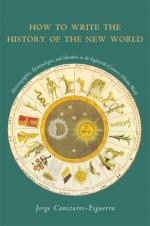|
This section contains 492 words (approx. 2 pages at 300 words per page) |

|
"Science of criteria" or "criteriology" is a term, originally neoscholastic, for a theory of knowledge in which judgments are warranted or justified simply by conforming to certain criteria for correct judgment. These criteria are general principles that specify what sorts of considerations ultimately confer warrant on some judgments and that tend (tacitly) to guide self-reflective persons in checking and correcting their judgments. The epistemologist's task is to formulate these principles by reflecting on the considerations present and absent in various judgments we intuitively think of as warranted and unwarranted.
Different criteria may deal with different subject matters, degrees, and sources of warrant (e.g., in perception, memory, inference). Ultimately, there must be warranting considerations other than inferability from other warranted judgments. These must be internally accessible through introspection or reflection without relying on further warranted judgments. They will not be considerations such as whether nature designed us to...
|
This section contains 492 words (approx. 2 pages at 300 words per page) |

|


